
Client portals have become an essential tool for businesses that need to streamline communication, document sharing, and service delivery. Softr has been a popular no-code solution for building such portals, thanks to its simplicity and integration with tools like Airtable. However, as businesses grow, many find themselves looking for more flexibility, scalability, and advanced customization options.
If you need a portal that offers deeper automation, richer design capabilities, or enhanced security, it’s worth exploring Softr alternatives that can better align with your business goals. Whether you’re managing client relationships, handling internal workflows, or setting up a membership site, the right no-code tool can make all the difference. In this article, we’ll break down the best Softr alternatives for 2025, comparing their key features, strengths, and ideal use cases to help you make an informed choice.
What is Softr?
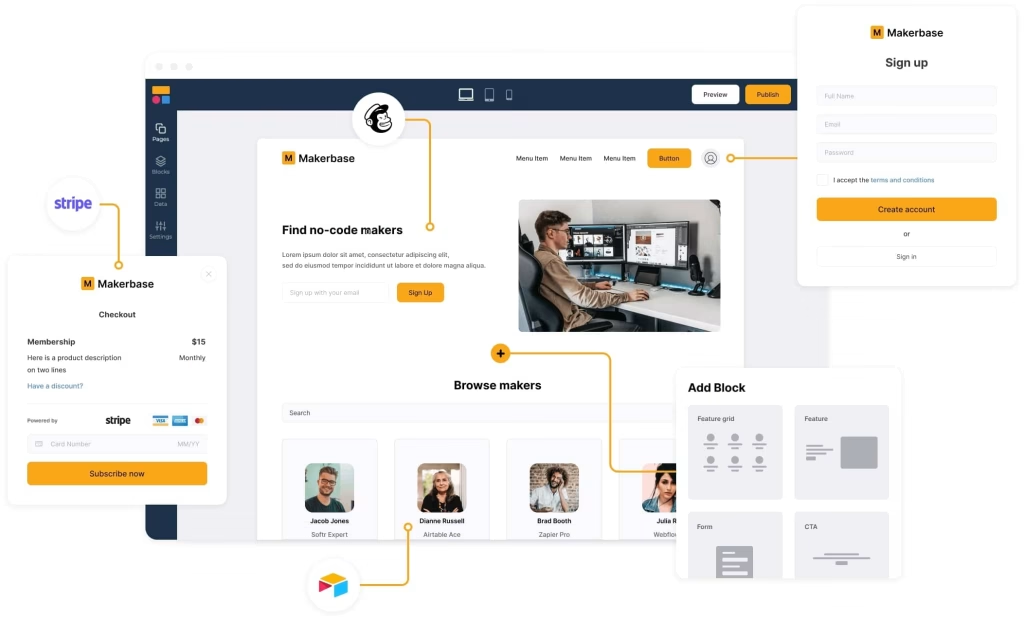
Softr is a no-code platform that allows users to build web applications, client portals, membership sites, and internal tools without any coding knowledge. It provides a user-friendly drag-and-drop interface, making it easy for individuals and businesses to create functional websites and apps powered by databases like Airtable and Google Sheets.
Key Features of Softr:
- Pre-built templates for various use cases (client portals, marketplaces, directories, etc.).
- Airtable and Google Sheets integration to manage and display dynamic data.
- Membership and authentication features for gated content.
- Custom domains and white-labeling for branding.
- Workflow automation through integrations with Zapier, Make, and other third-party tools.
Pros and Cons of Softr
Pros:
- No coding required – Easily build web apps, client portals, and internal tools.
- Pre-built templates – Get started quickly with ready-made designs.
- Airtable & Google Sheets integration – Use structured data effortlessly.
- Membership & authentication features – Restrict content and manage users.
- Custom branding – White-labeling and custom domains for a professional look.
- Automation-friendly – Integrates with Zapier, Make, and third-party tools.
Cons:
- Limited design flexibility – Customization options are restricted compared to advanced builders.
- Airtable dependency – You need to use Airtable as the primary database.
- Scalability issues – May not handle complex, high-traffic applications well.
- Feature limitations – Lacks some advanced functionalities found in full-fledged no-code platforms.
Who Uses Softr?
Softr is widely used by entrepreneurs, small businesses, and non-technical teams looking to create web apps quickly without hiring developers. It’s especially popular among those who want to build internal tools, customer portals, and community platforms efficiently.
Limitations of Softr:
While Softr is powerful, it has some limitations, including:
- Limited design flexibility compared to more advanced website builders.
- Dependency on Airtable, which may not be suitable for all businesses.
- Scalability concerns for large, complex applications.
If these limitations impact your needs, you may want to explore Softr alternatives that provide greater customization, flexibility, and integration options.
5 Best Alternatives to Softr in 2025
If you’re looking for a Softr alternative that offers more flexibility, deeper customization, or better scalability, here are five of the best options to consider:
1. FuseBase – The Most Versatile Softr Alternative
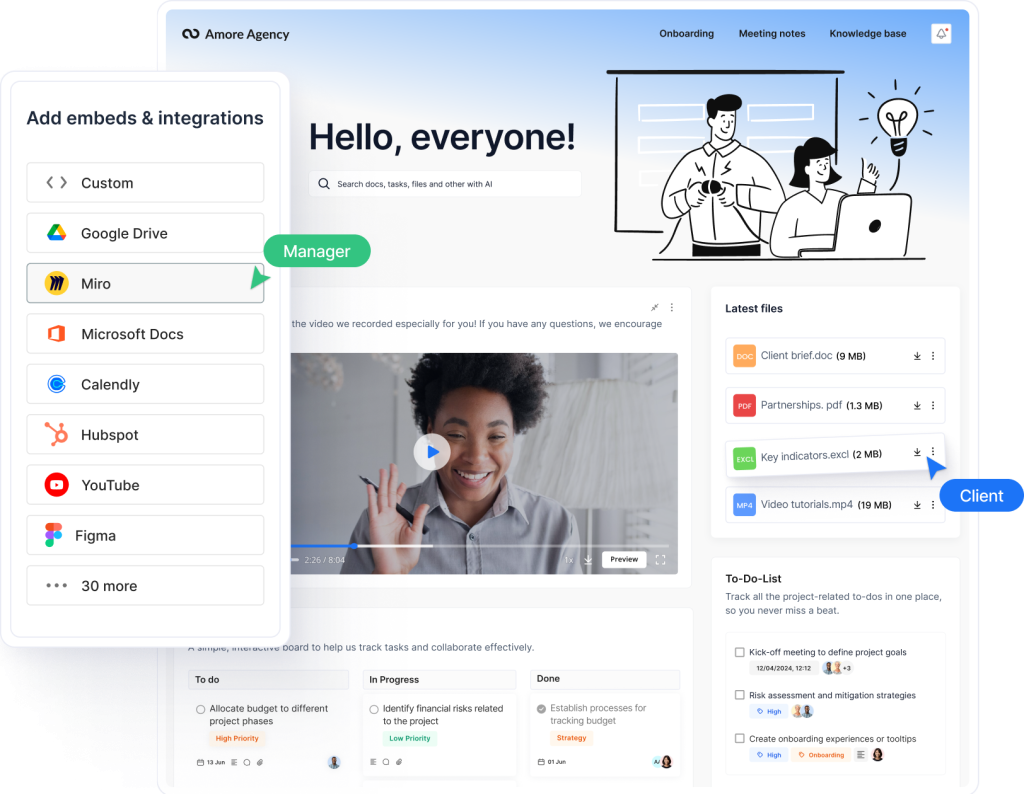
Why choose FuseBase?
FuseBase is a powerful no-code platform designed for client portals, document collaboration, and workflow automation. Unlike Softr, it provides advanced customization options, AI-powered automation, and granular permissions—making it a great choice for businesses that need a scalable and fully branded portal solution.
- Fully customizable UI with HTML/CSS/JS support.
- Advanced automation with AI and workflow triggers.
- Secure client portals with role-based access.
- Deep integrations with Google Drive, Slack, QuickBooks, and more.
- White-labeling & custom branding options.
Pricing:
- Free Plan: Available at no cost.
- Essentials: $38 per month.
- Plus: $98 per month.
- Ultimate: $198 per month.
- Request Demo: Contact for a custom quote.
FuseBase offers a free plan for individuals and teams. For detailed features and the most up-to-date information, it’s recommended to visit their official website or contact their sales team.
Best for: Consulting firms, service businesses, and enterprises that need a fully customizable client portal with automation capabilities.
🚀 Example of how Smart Portals transform your work:
2. Bubble – More Customization & Flexibility
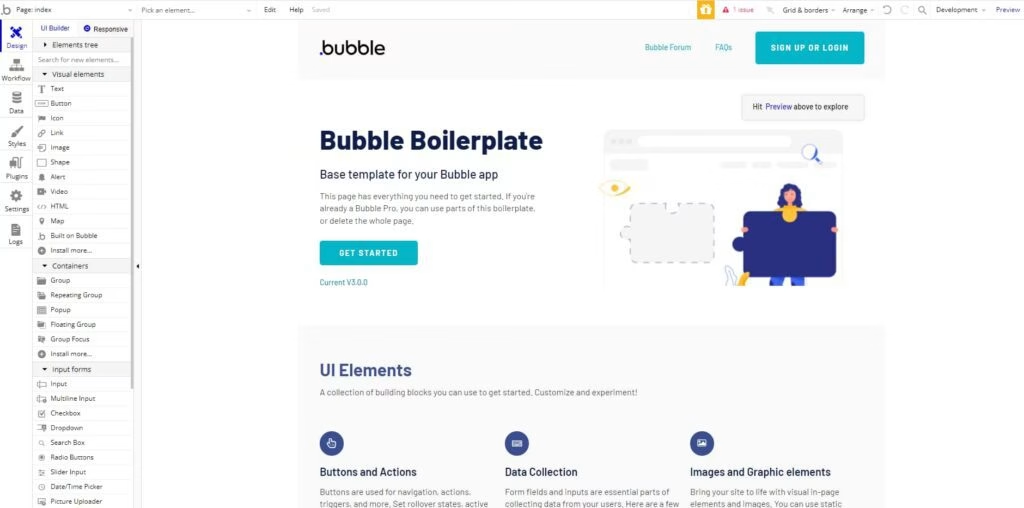
Bubble is a no-code development platform that offers more control over design and backend logic compared to Softr. While it has a steeper learning curve, Bubble is a great alternative for those who need highly customized web applications beyond the limitations of Softr’s template-based approach.
Best Features:
- Full UI customization with drag-and-drop + advanced logic.
- Powerful backend workflows with database flexibility.
- Scalable app development without Airtable dependency.
Pricing:
- Free Plan: Available with limited features.
- Personal: $29 per month (billed annually) or $32 per month (billed monthly).
- Professional: $129 per month (billed annually) or $134 per month (billed monthly).
- Production: $529 per month (billed annually) or $599 per month (billed monthly).
- Enterprise: Pricing available upon request; tailored for organizations requiring advanced features and support.
Bubble’s pricing is designed to accommodate various project needs, from personal projects to large-scale applications.
Best for: Startups and businesses that need complex, feature-rich web applications.
3. Glide – Best for Mobile-Friendly Apps
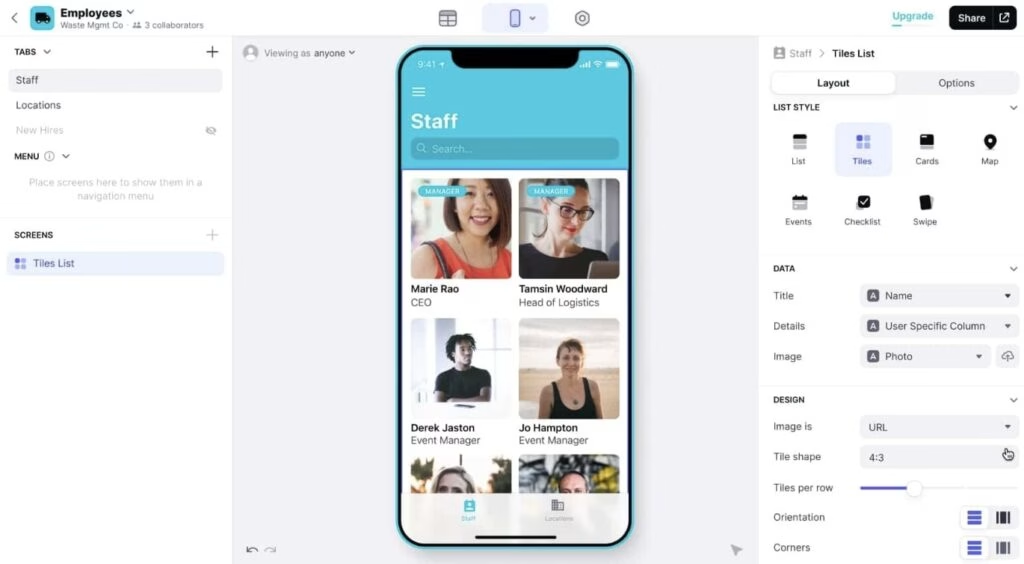
Glide is a no-code platform focused on building mobile apps powered by Google Sheets and other data sources. If you’re looking for an alternative to Softr that prioritizes mobile experience, Glide is an excellent choice.
Best Features:
- Easy-to-use interface for building progressive web apps (PWAs).
- Seamless integration with Google Sheets and Airtable.
- Quick deployment without coding experience.
Pricing:
- Free Plan: Available with basic features.
- Starter: $25 per month (billed annually) or $29 per month (billed monthly).
- Pro: $99 per month (billed annually) or $125 per month (billed monthly).
- Business: $249 per month (billed annually) or $299 per month (billed monthly).
- Enterprise: Custom pricing available upon request.
Note: Glide’s plans are structured to support a range of users, from individuals to businesses with advanced requirements.
Best for: Businesses that need client portals or internal tools optimized for mobile.
🚀 Another example of Portals that transform your work:
4. Pory – Best for Simplicity & Affordability
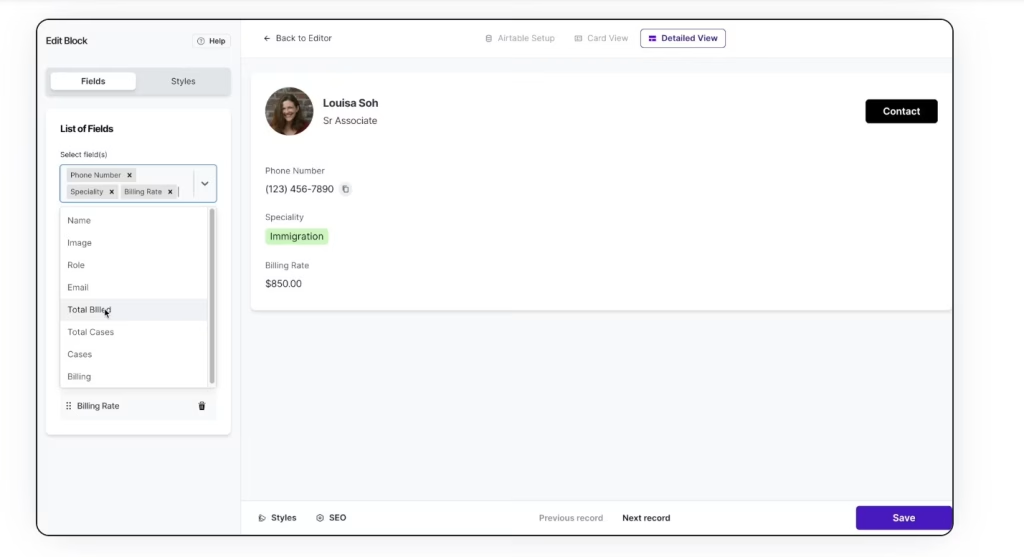
Pory is a lightweight, easy-to-use no-code platform built specifically for Airtable-based web apps. It offers a simple drag-and-drop builder with a focus on directories, membership sites, and community-driven applications.
Best Features:
- Simple, beginner-friendly UI.
- Seamless Airtable integration (like Softr).
- Pre-built templates for community portals and directories.
Pricing:
- Free Plan: Available with limited features.
- Pro: $49 per month (billed annually) or $59 per month (billed monthly).
- Business: $89 per month (billed annually) or $109 per month (billed monthly).
- Enterprise: Custom pricing available upon request.
Pory offers straightforward pricing suitable for small businesses and growing teams.
Best for: Small businesses and solo entrepreneurs looking for an affordable no-code alternative to Softr.
5. WeWeb – Best for Webflow-Style Customization
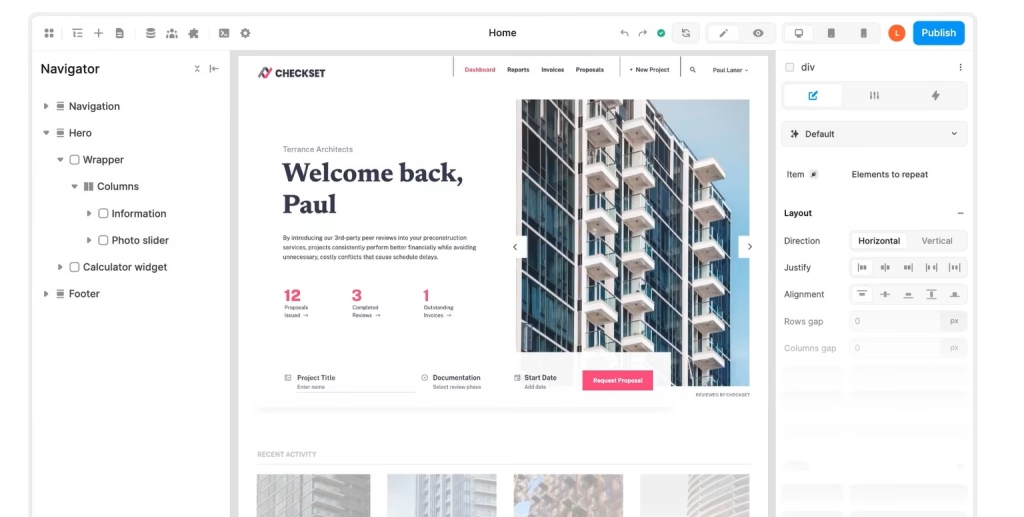
WeWeb is a no-code frontend builder that allows users to create fully customizable web applications with a powerful visual editor. Unlike Softr, it gives users complete control over UI elements while still enabling backend integrations with Airtable, Xano, and other databases.
Best Features:
- Pixel-perfect UI design capabilities (similar to Webflow).
- Backend-agnostic – works with multiple data sources.
- More control over workflows and animations.
Pricing:
- Free Plan: Available for development purposes; publishing requires a paid plan.
- Starter: $29 per month (billed annually) or $39 per month (billed monthly).
- Pro: $49 per month (billed annually) or $69 per month (billed monthly).
- Business: $199 per month (billed annually) or $249 per month (billed monthly).
- Enterprise: Custom pricing available upon request.
WeWeb’s pricing is designed to cater to developers and businesses seeking customizable web solutions.
Best for: Designers and businesses that want Webflow-like flexibility with no-code app development.
Conclusion: Finding the Best Softr Alternative for Your Needs
While Softr is a solid no-code platform for building client portals, membership sites, and internal tools, it may not be the perfect fit for everyone. Whether you need more customization, scalability, or flexibility in database choices, there are several Softr alternatives that can better suit your specific use case.
If you’re looking for a fully customizable, automation-powered client portal, FuseBase stands out as the top choice, offering advanced features for businesses that require white-labeling, granular permissions, and workflow automation. On the other hand, platforms like Bubble, Glide, Pory, and WeWeb cater to different needs, from highly complex applications to mobile-first solutions and simple web apps.
Choosing the right no-code platform depends on your project goals, level of customization required, and technical needs. We hope this guide has helped you explore the best Softr alternatives so you can make an informed decision and build the perfect solution for your business.